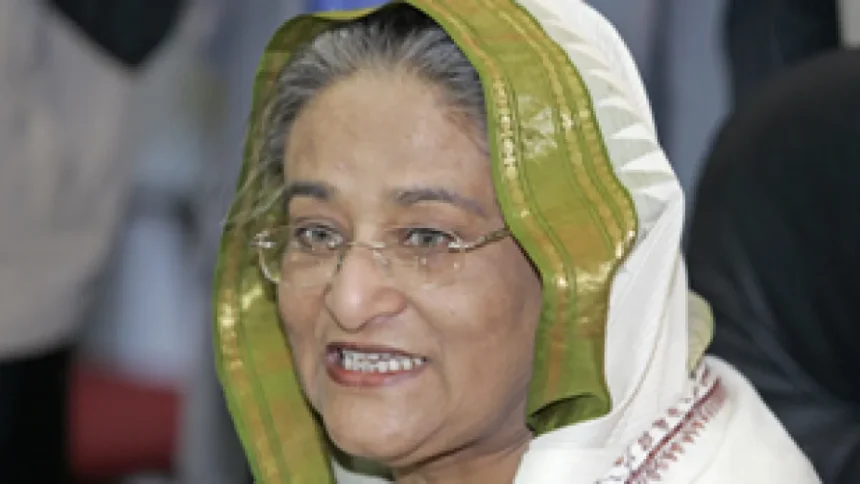The sudden removal of Bangladesh Prime Minister Sheikh Hasina from power has sent shockwaves through the international community. As one of South Asia’s prominent political figures, Sheikh Hasina’s ouster has elicited a wide range of reactions from world leaders, each reflecting their perspectives on the implications for Bangladesh and the broader region.
Background of the Ouster
Sheikh Hasina, who has been in power since 2009, was removed from office following a series of political upheavals and allegations of corruption. Her tenure has been marked by significant economic growth and development in Bangladesh, but also by accusations of authoritarianism and human rights abuses. The circumstances surrounding her ouster are complex, involving internal political strife, mass protests, and pressure from opposition parties.
Reactions from World Leaders
United States
The U.S. State Department issued a statement expressing concern over the stability of Bangladesh and emphasizing the importance of democratic processes. “The United States calls for a peaceful transition of power and urges all parties to engage in dialogue to restore democratic governance,” said Secretary of State Antony Blinken. The U.S. has long been an ally of Bangladesh, supporting its economic and social development.
India
As Bangladesh’s immediate neighbor and strategic partner, India’s reaction has been particularly significant. Indian Prime Minister Narendra Modi expressed hope for a peaceful resolution to the political crisis. “India stands by the people of Bangladesh during this challenging time and hopes for a swift return to normalcy and democratic order,” Modi stated. India and Bangladesh have shared strong bilateral ties, with cooperation in various sectors including trade, security, and infrastructure.
China
China, which has been increasing its influence in South Asia, called for stability and continuity in Bangladesh. “We respect the internal affairs of Bangladesh and hope that the situation will be resolved through dialogue and legal frameworks,” said a spokesperson for the Chinese Foreign Ministry. China has invested heavily in Bangladesh, particularly through its Belt and Road Initiative, and has strategic interests in maintaining stability in the region.
European Union
The European Union expressed concern over the potential for human rights violations amidst the political turmoil. “The EU urges all sides to adhere to democratic principles and respect human rights during this transition period,” stated Josep Borrell, the EU’s High Representative for Foreign Affairs. The EU has been a vocal supporter of human rights and democratic governance in Bangladesh.
United Nations
UN Secretary-General António Guterres called for calm and restraint from all parties involved. “The United Nations urges all stakeholders in Bangladesh to refrain from violence and to engage in constructive dialogue to ensure a peaceful and democratic transition,” Guterres said. The UN has been actively involved in various developmental and humanitarian efforts in Bangladesh.
United Kingdom
The United Kingdom, with historical ties to Bangladesh, also expressed its stance on the situation. “We are monitoring the developments in Bangladesh closely and call for a return to democratic processes and respect for the rule of law,” said Foreign Secretary James Cleverly. The UK has been an important partner in Bangladesh’s development journey, particularly in education and health sectors.
Implications for Bangladesh and the Region
The removal of Sheikh Hasina has created uncertainty in Bangladesh, with potential impacts on its economy, governance, and regional relations. The country has seen significant progress in poverty reduction, infrastructure development, and social indicators under Hasina’s leadership. However, the political instability could threaten these gains and lead to disruptions in governance and public services.
Regional dynamics are also likely to be affected. Bangladesh’s strategic location and its relationships with major powers like India, China, and the United States make its stability crucial for South Asia. The reactions from these countries indicate their vested interests in ensuring that Bangladesh remains stable and continues on its path of development.
Conclusion
The international community’s responses to the ouster of Bangladesh PM Sheikh Hasina highlight the global significance of Bangladesh’s political stability. As world leaders call for peaceful and democratic processes, the focus now shifts to how Bangladesh navigates this turbulent period. The path forward will require careful management of internal politics and continued engagement with international partners to ensure that the country remains on a trajectory of growth and development.
Get More Politics info: https://www.timelinetale.com/


